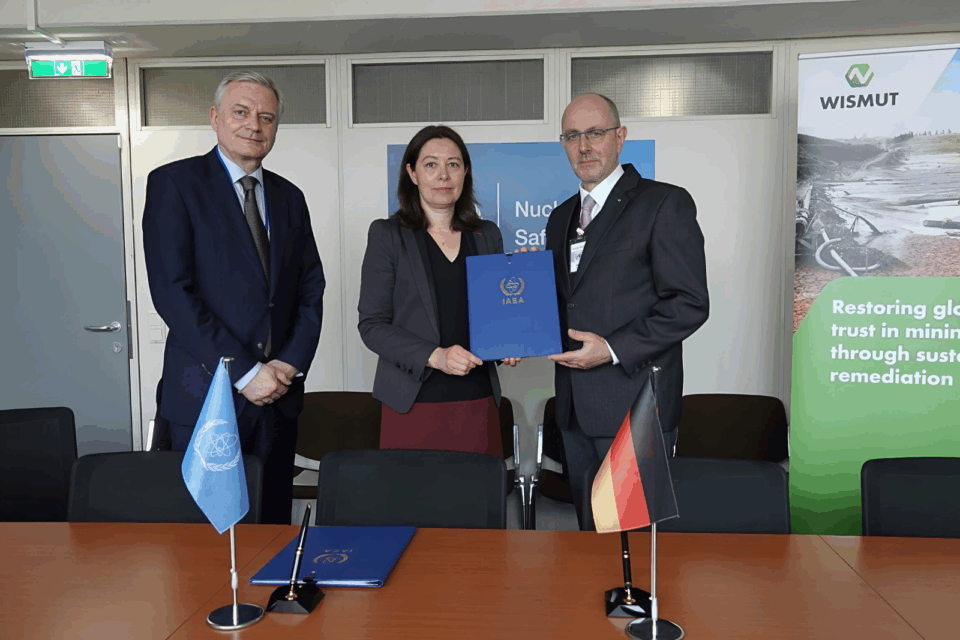The International Atomic Energy Agency (IAEA) has signed a new cooperation agreement with Wismut GmbH, a German state-owned company, to enhance global efforts in the safe management and environmental remediation of former uranium mining sites.
“This agreement reinforces our joint commitment to advancing the safe rehabilitation of legacy uranium sites, ensuring modern environmental practices are informed by the latest innovations and expertise,” said Lydie Evrard, IAEA Deputy Director General and Head of the Department of Nuclear Safety and Security.
Decades of Experience, Now Formalized
Wismut GmbH has led rehabilitation efforts at uranium mining sites in Germany and has worked with the IAEA for over 20 years. The new formal partnership builds on this long-standing collaboration, creating a framework to share Wismut’s technical knowledge with the global community.
The agreement, signed on 2 April 2025, aims to assist countries around the world in safely managing former uranium production sites, many of which were developed between the 1940s and 1990s without proper end-of-life planning. These legacy sites often contain radioactive and toxic residues that pose environmental and health risks to nearby communities.
A Global Knowledge-Sharing Initiative
Under the new agreement, Wismut will:
- Support the development and distribution of technical publications on environmental remediation, decommissioning, and management of residues from uranium mining.
- Contribute experts to IAEA training courses, workshops, and webinars, helping to build capacity in member states.
- Participate in expert missions of the Coordination Group for Uranium Legacy Sites (CGULS).
- Support activities of other IAEA networks, including:
- The Regulatory Supervision of Legacy Sites (RSLS) Forum
- The Environmental Management and Remediation Network (ENVIRONET)
- The Uranium Mining Remediation Exchange Group (UMREG)
These efforts are critical to helping countries safely close and restore uranium sites, protecting public health and rebuilding trust in resource extraction industries.
Michael Paul, Managing Technical Director of Wismut, noted:
“This agreement lays a solid foundation for future cooperation in environmental remediation, an increasingly vital area for demonstrating that sustainable and responsible resource extraction is possible. It helps rebuild trust with communities impacted by mining.”
Uranium’s Legacy and Its Future
Uranium, a key fuel for nuclear energy, was mined extensively throughout the 20th century. However, insufficient planning during those early operations left behind a complex environmental legacy. The IAEA has prioritized safe remediation of these sites to prevent long-term environmental damage and health risks.
Through this enhanced partnership with Wismut GmbH, the IAEA continues to provide technical guidance, promote international collaboration, and ensure best practices are adopted globally in the cleanup and long-term management of uranium mining legacies.


